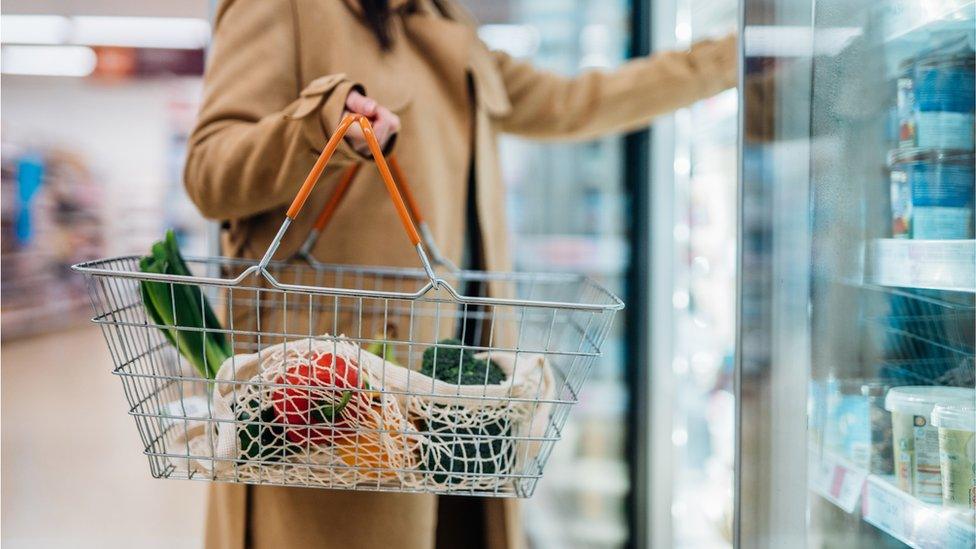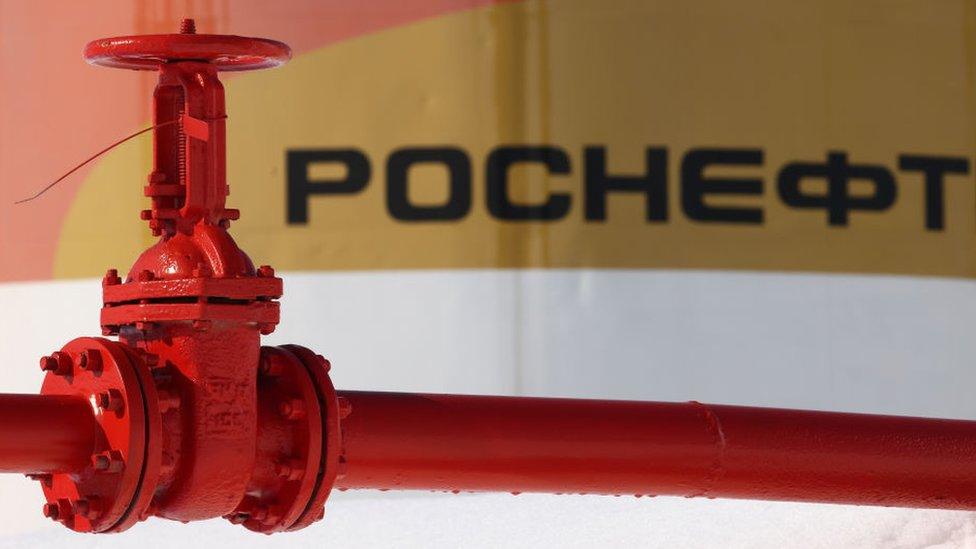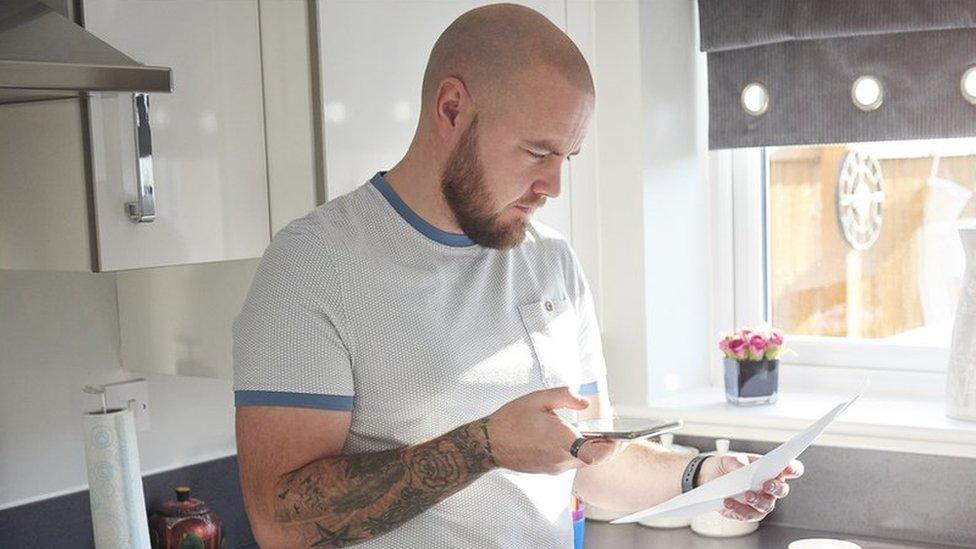Ukraine war: Cost of filling diesel family car hits record £90
- Published
- comments

The cost of filling an average family car with diesel has topped £90 for the first time, as soaring oil prices hit household budgets.
The RAC motoring group said the average price of a litre of diesel rose 3p overnight to a record 165.24p - the biggest daily jump since 2000.
Tuesday's oil embargo on Russia for invading Ukraine has left governments searching for alternative supplies.
The UK gets 8% of its oil imports from Russia, but about 18% of its diesel.
A litre of petrol was now 158.2p, a 2p rise, the RAC said.
The latest jump in pump prices is likely to have been pushed higher by soaring wholesale costs before Tuesday's announcement that the UK intends to phase out its imports by the end of 2020.
A barrel of crude oil rose 1.3% on Wednesday, and experts say this will feed through into still higher retail prices.
RAC fuel spokesman Simon Williams said: "The diesel daily increase was the second largest on record since 2000.
"The cost of a filling a 55-litre family car with petrol is now £87 - £7 more than it was at the start of the year. Diesel drivers are even worse off with a tank now costing more than £90 for the first time ever - £8 more than in early January."
And he warned of more pain at the pump: "Petrol is now certain to top an average of £1.60 a litre this week while diesel will progress very quickly towards £1.70."
The US said on Tuesday it would immediately ban Russian oil and gas, and the EU vowed to cut is gas imports by two thirds this year.
Business Secretary Kwasi Kwarteng tweeted that the UK's transition would give its "market, businesses and supply chains more than enough time to replace Russian imports".
Allow X content?
This article contains content provided by X. We ask for your permission before anything is loaded, as they may be using cookies and other technologies. You may want to read X’s cookie policy, external and privacy policy, external before accepting. To view this content choose ‘accept and continue’.
Robert Buckley, an energy analyst at Cornwall Insight, told the BBC the UK ban was "largely symbolic" because Russian oil was such a small part of its overall energy mix.
However, together with the US ban, and widespread boycotts by western companies, the move is likely to increase already high oil prices in the coming weeks, he said.
"This is a global market and you've got to replace that displaced supply somehow," Mr Buckley told the BBC.
"At the margin, this decision will act to support oil prices which are already extremely high."

Surging pump prices
The price of Brent crude - the global oil benchmark - has climbed for weeks, hitting a 14-year high of $139 a barrel at one point on Monday. Prices jumped 7% on Tuesday after the sanctions were announced.
Western governments are trying to find alternative supplies and looking at how to increase output. This includes possible deals to unlock supplies from Iran or Venezuela - both of which face their own oil sanctions. However, talks are reportedly making very slow progress.
Russia, the Netherlands, and Saudi Arabia were largest sources of road diesel in 2020, according to the latest Digest of UK Energy Statistics, external (Dukes). The three countries accounted for 62% of total road diesel imports in 2020.
The annual report also pointed out that the UK is one of the largest importers of diesel in the OECD group of biggest economies.
Mr Kwarteng told the Commons on Wednesday that a taskforce of officials and business would look into how the transition to alternative supplies could be implemented without hurting consumers. He said the taskforce would work with the US and Gulf states.
He said: "Working with industry, we are confident that this can be achieved over the course of the year, providing enough time for companies to adjust and ensuring consumers are protected."
The business secretary also said there should be more investment in North Sea oil and gas fields.
However, he declined to commit to restarting fracking for gas in the UK, as some MPs in the Conservative Party have called for. Instead, he echoed earlier comments by Prime Minister Boris Johnson that the government would look at all options.
'Fuel poverty'
Even before Russia invaded Ukraine, the UK's cost of living was rising at its fastest rate in 30 years amid surging global demand for oil and gas as pandemic restrictions eased.
But the war has added to this pressure, driving up the cost of not just fuel and energy but also other commodities like wheat and metals.

Food prices are rising
Nathan Piper, an oil and gas analyst at Investec, said the EU's decision on Tuesday to reduce its reliance on Russian gas was also likely to hit the UK.
Wholesale gas prices have been climbing for months and analysts expect the UK's energy price cap - which limits what consumers pay for gas and electricity - to rise to more than £3,000 a year for the average household when it is next reviewed in October.
"We are on the cusp of a prolonged period of high oil and gas prices, possibly lasting several years," Mr Piper told the BBC.
"You can't just cut the second largest gas producer and third largest oil producer out of global supply and not expect it to have big impact on consumers," he added.
He said there would be "extreme fuel poverty" over the next few years, with the government facing growing pressure to offer more support.
In research published on Tuesday, external, the Centre for Business and Economic Research (CEBR) warned that a combination of rising commodity and oil prices and sanctions was likely to have major impact on the UK economy.
It estimates that GDP growth this year will be more than halved - down from a previously forecast 4.2% to 1.9%.
Related topics
- Published9 March 2022

- Published8 March 2022
- Published8 March 2022
